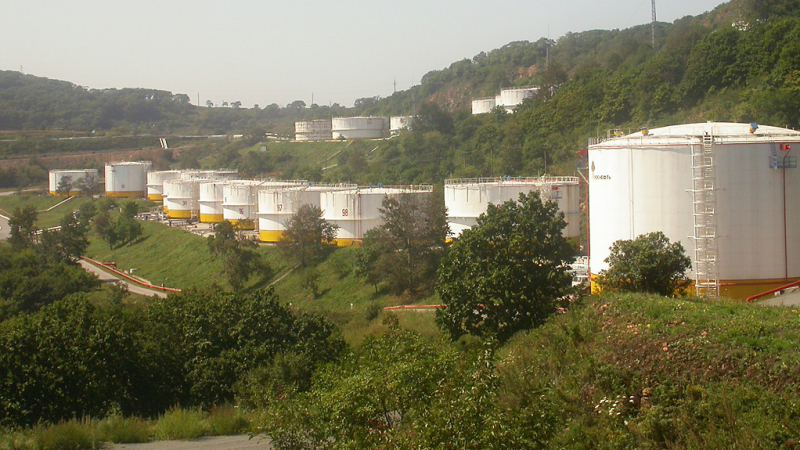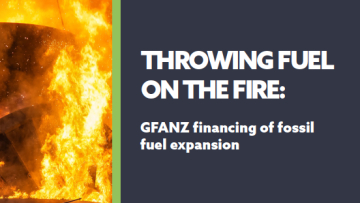Company – On record
This profile is no longer actively maintained, with the information now possibly out of dateBankTrack

Company – On record
This profile is no longer actively maintained, with the information now possibly out of dateBankTrack
Why this profile?
Oil and gas supermajor Rosneft has a deplorable environmental record; it has been responsible for a number of oil spills and ecological disasters, and is among the top twenty companies associated with new expansion projects in the Arctic. These pose considerable risks to local communities and the environment. As Russia relies heavily on revenues from oil and gas, Rosneft’s profits fuel the Kremlin’s budget and its ability to continue financing war in Ukraine.
What must happen
Commercial banks should avoid further financing Rosneft and should divest, as far as legally permitted, from any of the company’s projects they participate in. They should also cut any other commercial ties with it.
| Sectors | Oil and Gas Extraction |
| Headquarters |
|
| Ownership |
listed on London Stock Exchange & Moscow Exchange
Rosneft’s immediate parent company (40.40%) is ROSNEFTEGAZ JSC, 100% state-owned. QH Oil Investments owns a 18.46% stake. Following Russia’s invasion of Ukraine in February 2022, British oil giant BP announced the sale of its 19.75% stake in Rosneft. As of February 2023, the sale has not yet been completed. Full shareholder capital structure as of July 2021 here.
|
| Subsidiaries |
|
| Website | https://www.rosneft.com |
Rosneft is the third-largest company in Russia by revenue and is ranked in the Forbes Global 2000 List 2022 as one of the largest public companies in the world. Rosneft’s core activities include oil and gas production, refining and export. The company also accounts for 6% of global oil production. By the end of 2020, Rosneft’s total hydrocarbon production reached 5.19 million barrels per day. Despite international sanctions, the company registered a 13% rise in its half-year net profit to US$ 7.22 billion.
Impact on human rights and communities
Impacts on Indigenous communities in the Arctic region Rosneft’s Vostok Oil project in the Arctic is expected to pose serious danger to the Dolgan Indigenous community. The massive oil project, which includes the construction of 15 towns, a port, two airports and 800 km of pipelines, threatens the livelihoods of the Dolgan people inhabiting the project areas.
The Dolgan peoples have retained a nomadic way of life and most of them are reindeer herders. As the Vostok Oil project develops across the Arctic tundra in the Taymyr Peninsula, the usual migration routes of Dolgans and their reindeer will be disrupted, thus damaging their traditional lifestyle and culture.
Additionally, the planned construction of a huge port to favour oil exportation will have an adverse impact on fish upstream migration paths. This puts in danger the livelihoods and traditions of local fishing communities.
Rosneft’s involvement in Russia’s war on Ukraine Rosneft is the second-largest state-owned company and the largest taxpayer in Russia. In November 2022, the company announced the payment of dividends on its nine-month results, which is expected to boost Russia’s budget by a further US$ 3.6 billion. As a result, Rosneft contributes to Russia’s ability to finance the war and to perpetrate war crimes in Ukraine. In addition, Rosneft’s CEO Igor Sechin is a close ally of Vladimir Putin, and the second most important person in Russia.
Rosneft fuel linked to war crimes in Myanmar A report by Amnesty International found international oil companies, including Rosneft, to be linked to ongoing war crimes in Myanmar through their supply of aviation fuel to the military junta. According to Amnesty, the fuel supplied has been used in air raids against civilians, targeting hospitals, schools, and homes.
Impact on climate
While the IEA’s Net Zero by 2050 Roadmap (2021) clearly states that in order to achieve the goal set in the Paris Agreement to limit global heating within 1.5°C no new gas and oil fields should be developed, fossil fuel majors’ plans go in the opposite direction.
Rosneft ranks among the top companies whose short and long-term plans to expand and exploit new gas and oil are the most incompatible with the Paris Agreement goals. The company’s Vostok Oil project alone is estimated to produce up to 100 million tonnes of oil annually by 2030.
As shown by Climate Action 100+ March 2022 Assessment, Rosneft falls short from implementing adequate corporate policies to align with the goals of the Paris Agreement and of Climate Action 100+ and overall fails to significantly improve its climate change-related performance.
Impact on nature and environment
Oil spills Greenpeace Russia estimated that Rosneft is among the worst polluters in the Arctic, with some of the most catastrophic oil spills linked to its subsidiaries. For instance, in 2016, Rosneft caused a spill from an unused pipeline on the Pacific island of Sakhalin that resulted in the release of approximately 15 tons (110 barrels) of oil. In 2021 Bashneft, a regional subsidiary of the company was found responsible for a major oil leak in the Bizhbulyaksky district in the Bashkiria region. It was reported that around 300 cubic metres of oily water were spilled, polluting 350 square metres of soil. In the same year, Irkutsknefteprodukt, another subsidiary of Rosneft, was credited with causing an oil spill into the Lena River which was due to a malfunction on a tanker. Up to 100 litres of oil products got into the water of the river.
Rosneft has allegedly caused more than $8 billion in environmental damage from illegal waste dumps in the Khanty-Mansi region. The oil company disposes of millions of tons of contaminated drilling waste, a practice that is wreaking environmental havoc by polluting northern rivers that drain into the Arctic Ocean.
Additionally, the Vostok oil field, currently under development, has been vehemently criticised by environmentalists because of its partial encroachment on protected nature reserves and because of the heightened risk of oil spills in the fragile Arctic ecosystem.
Other impacts
Commercial banks finance Rosneft both via corporate loans and bond underwritings.
Recent Rosneft financing include:
-
In 2022, Rosneft successfully completed its debut CNY-denominated bond issuance totalling CNY 15 billion;
-
In 2021, the company raised USD 2,500 million via bond issuance;
-
In 2020, Rosneft issued a ten-year maturity bond for a total RUB 400 billion.
Rosneft has also adopted its own Statement on Human Rights, Code of Conduct and Supplier Code of Conduct.
2022
2022-03-15 00:00:00 | EU introduces additional sanctions against Russia
The EU introduced further sectoral measures targeting among others key oligarchs as well as key companies in the aviation, military and dual-use, shipbuilding and machine-building sectors. Rosneft and Marina Sechina, a former wife of the CEO of Rosneft were included on the list.

